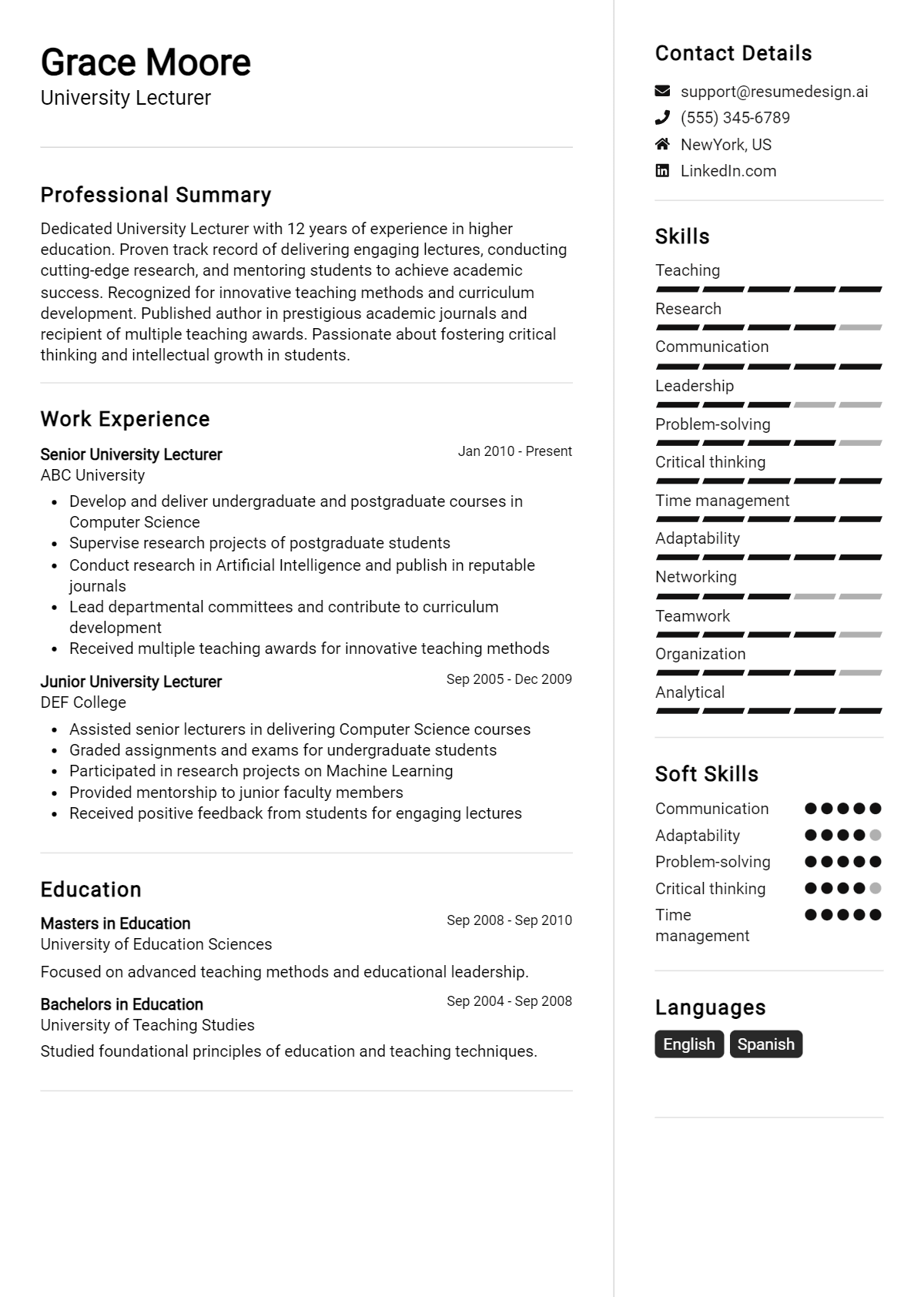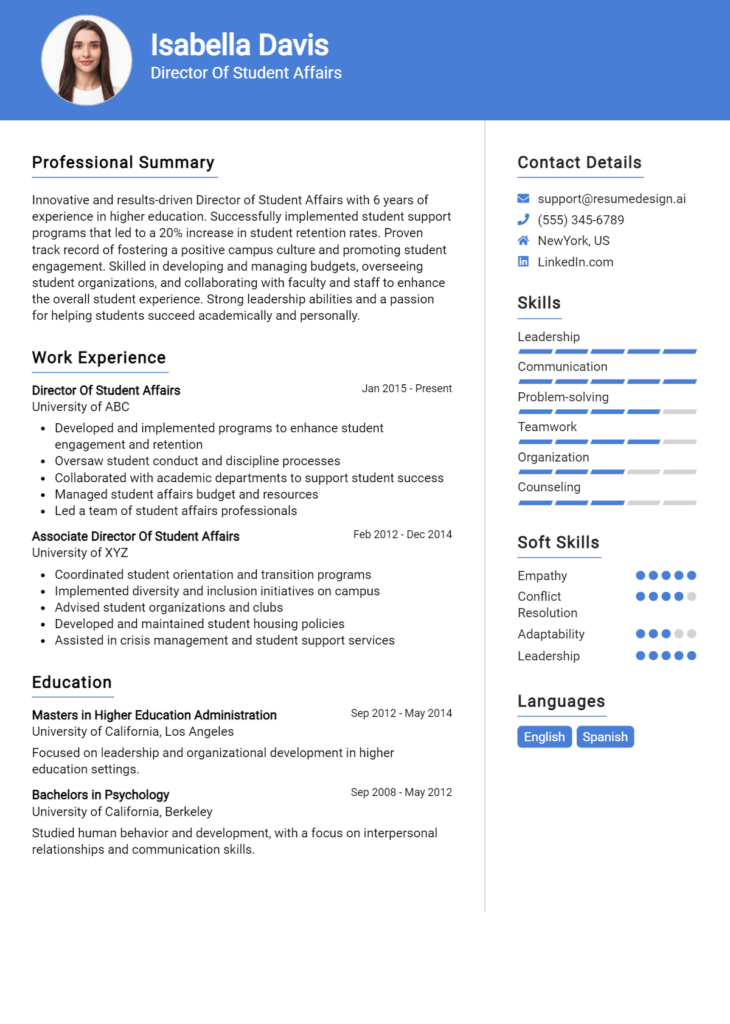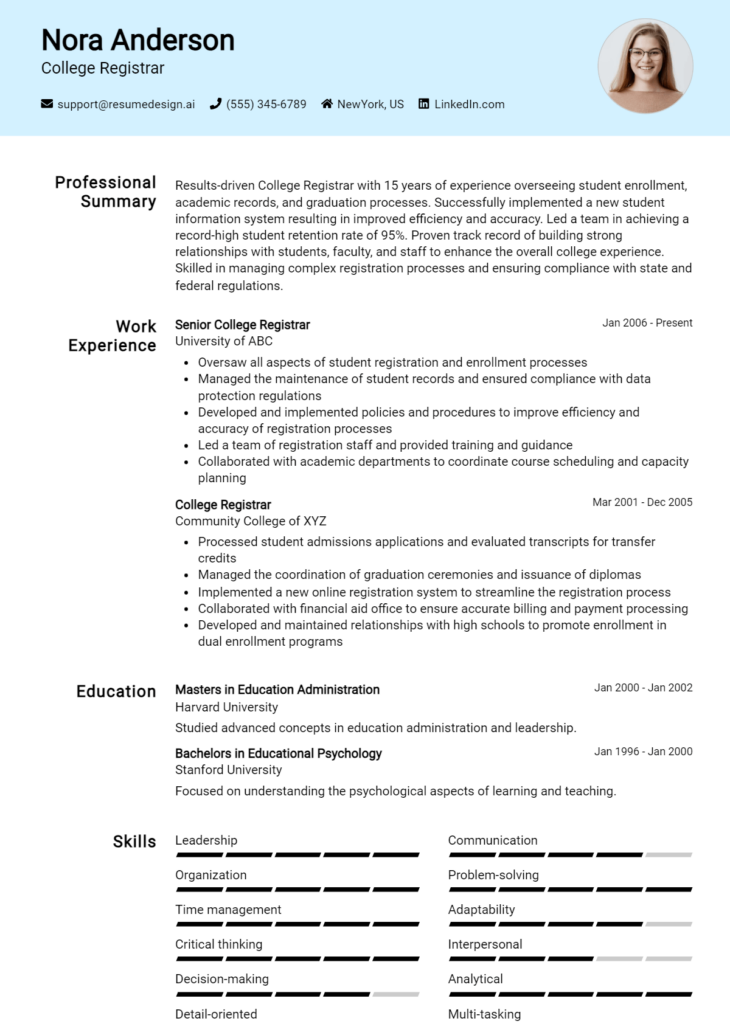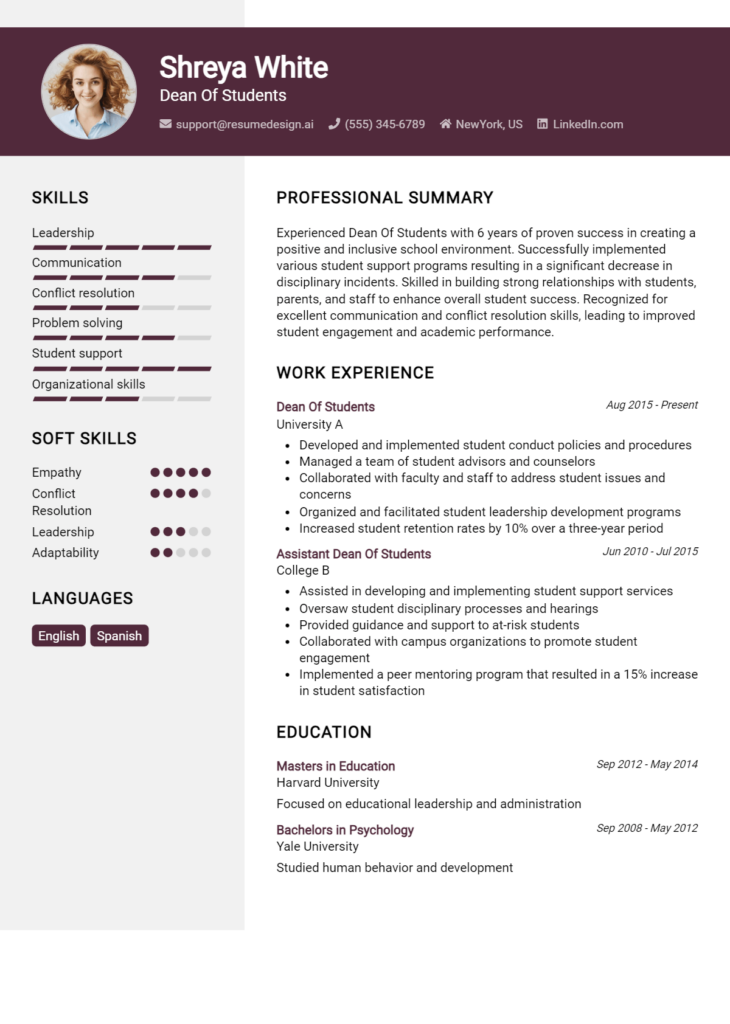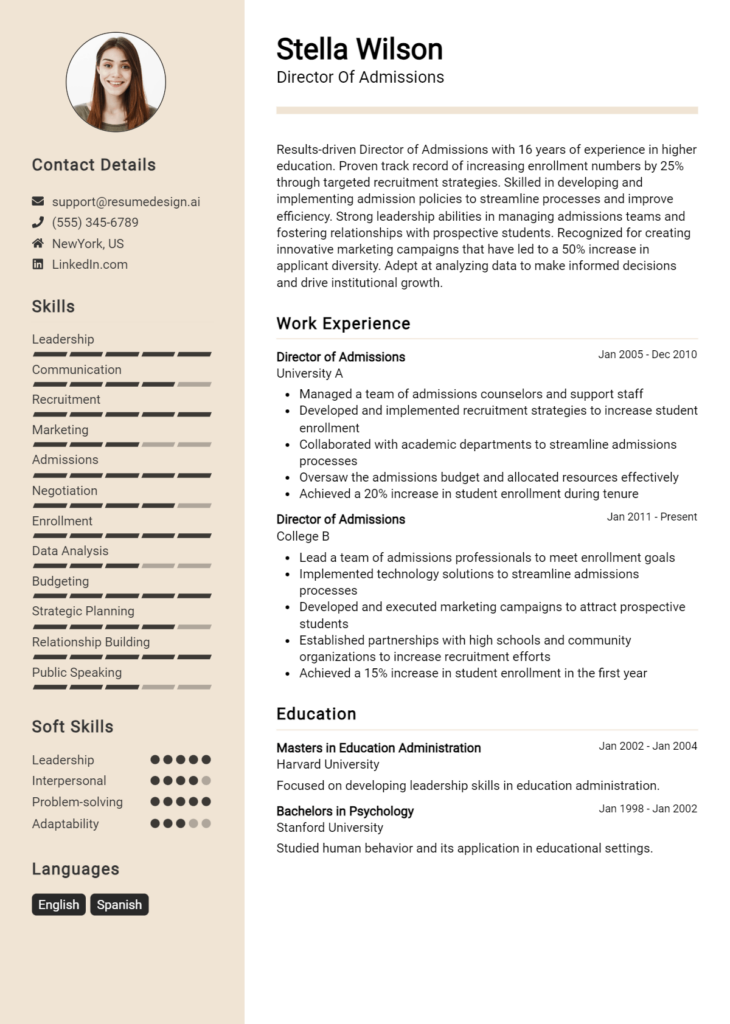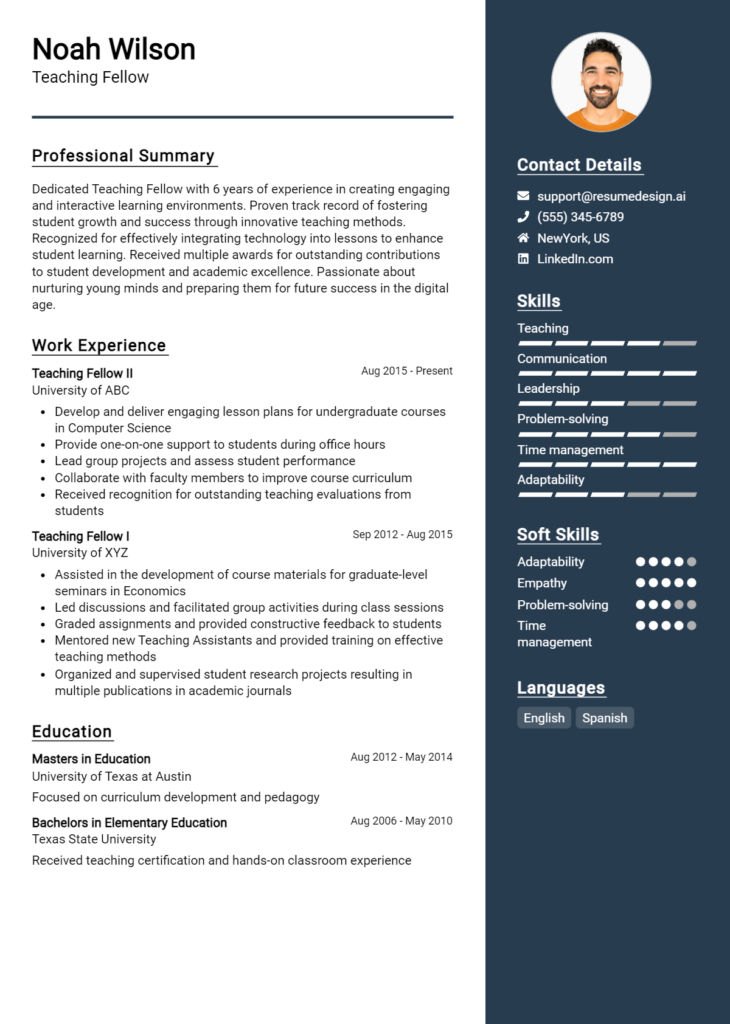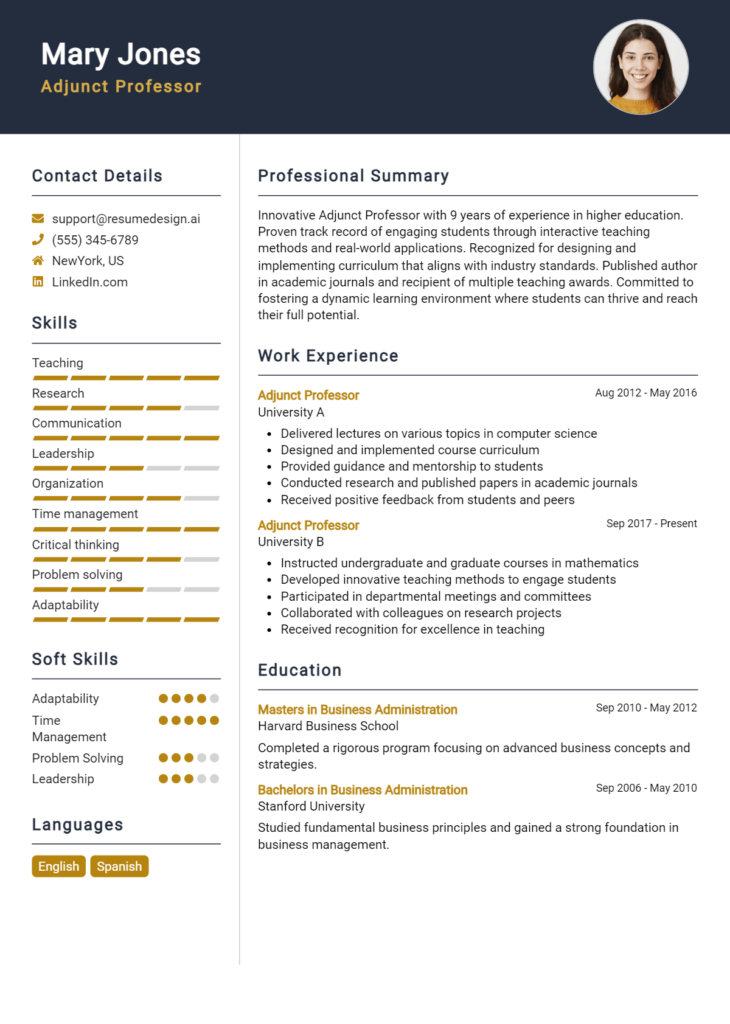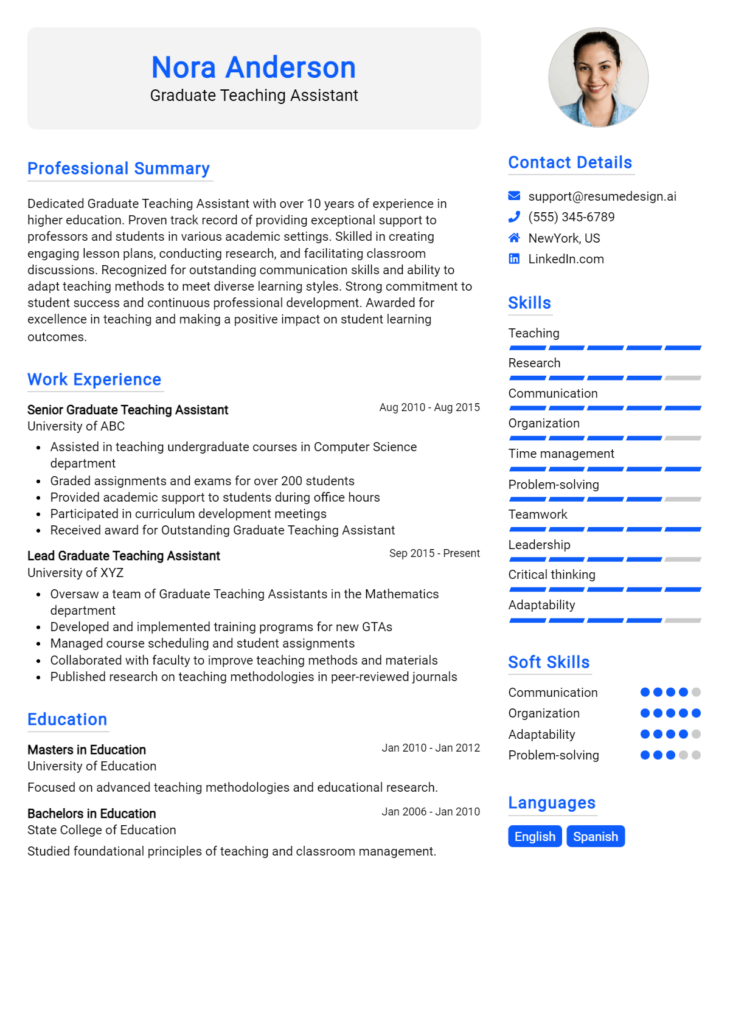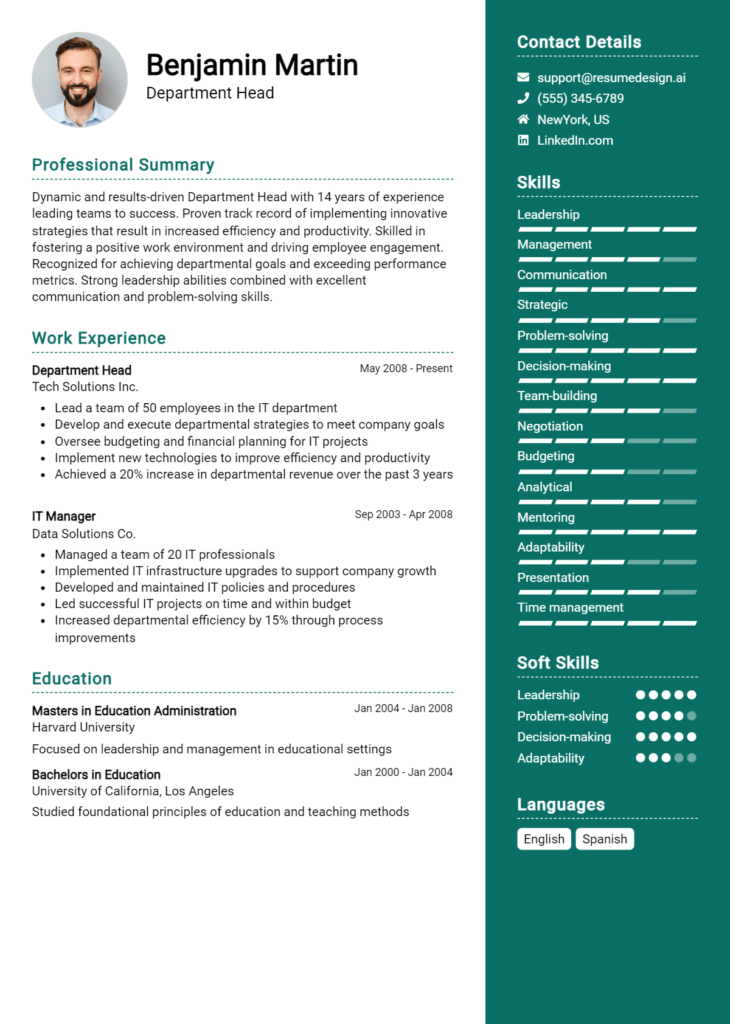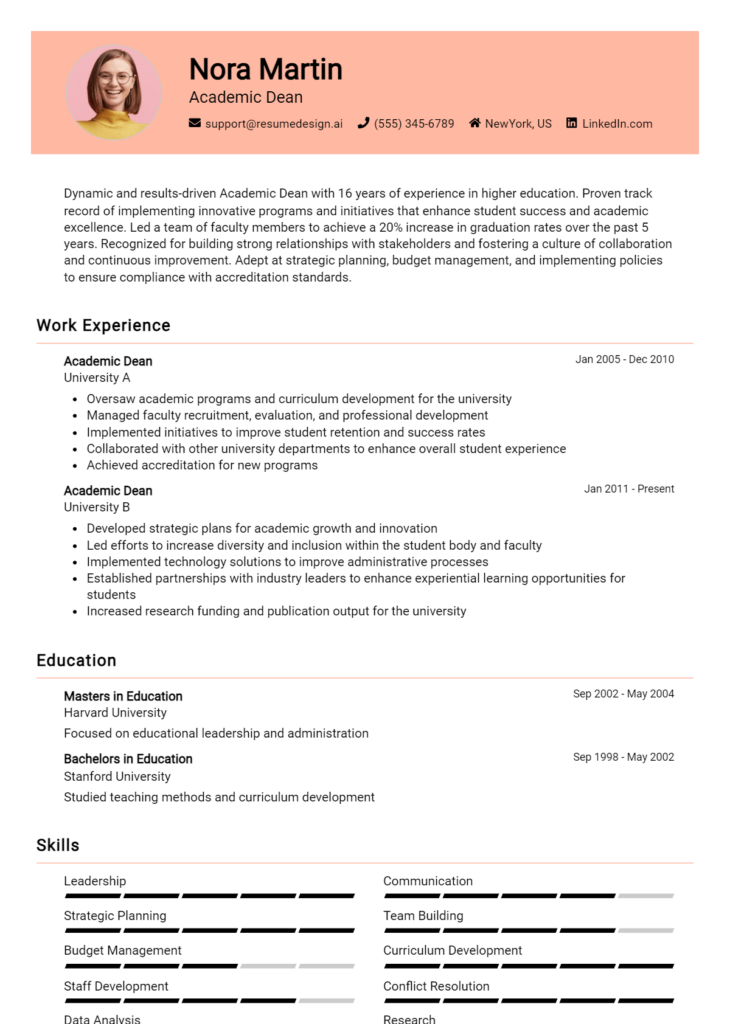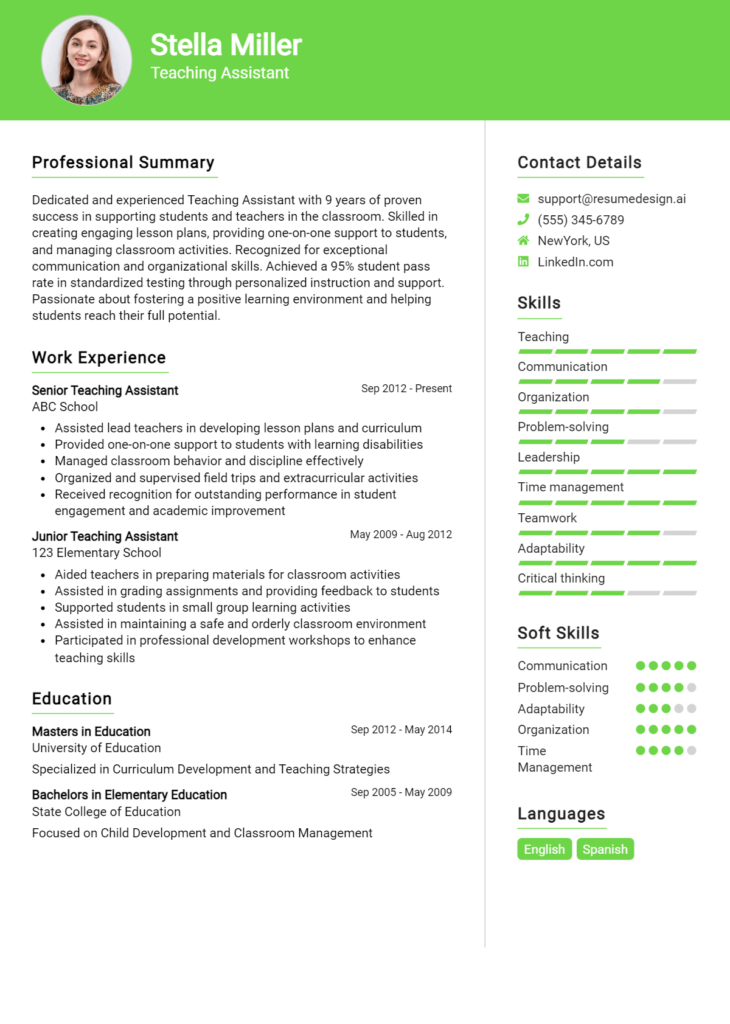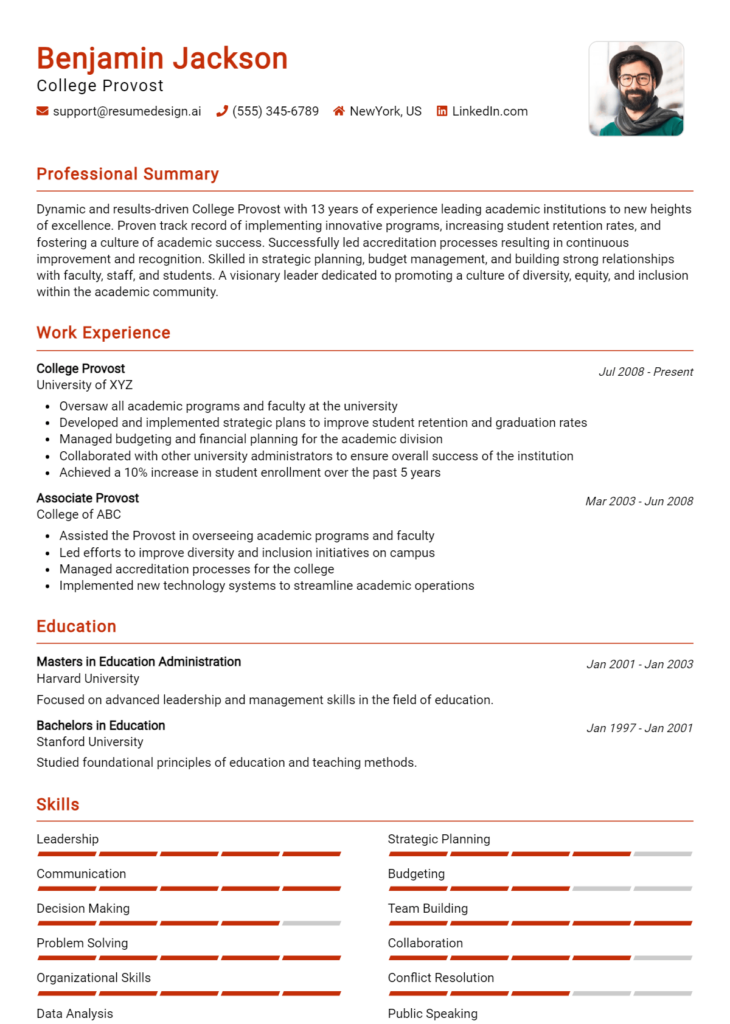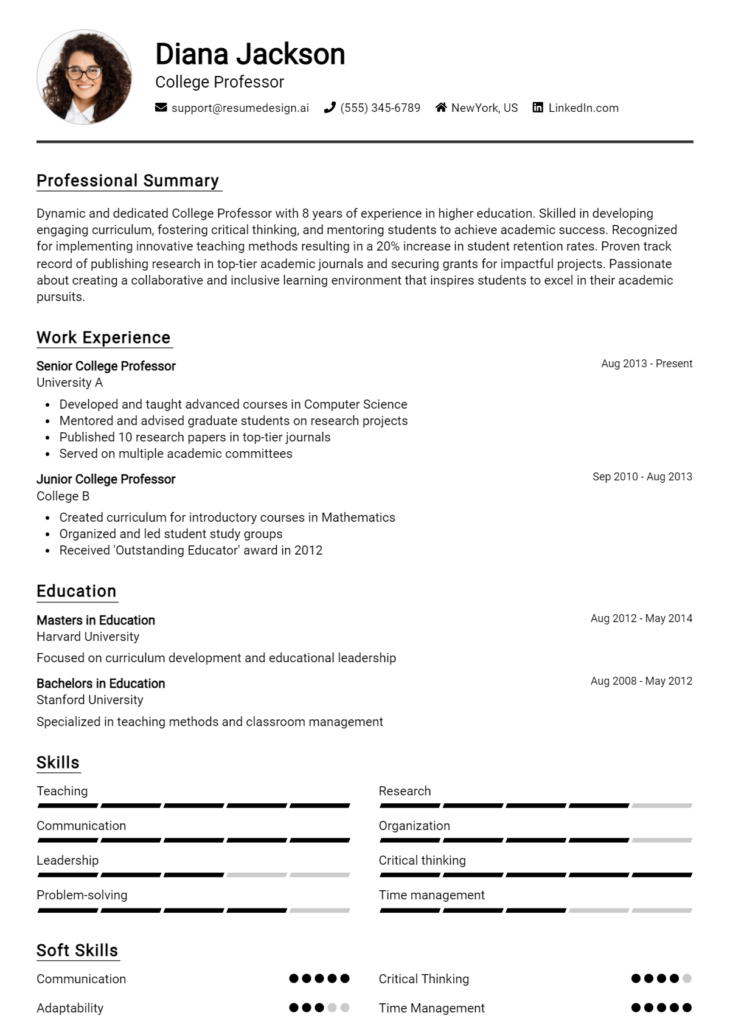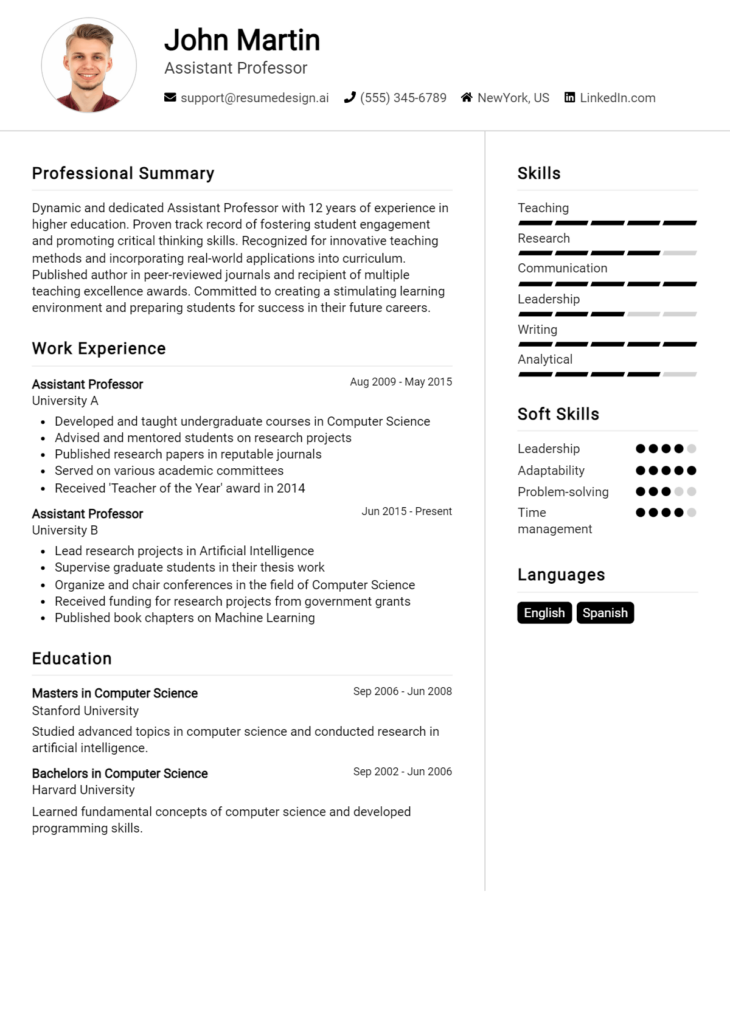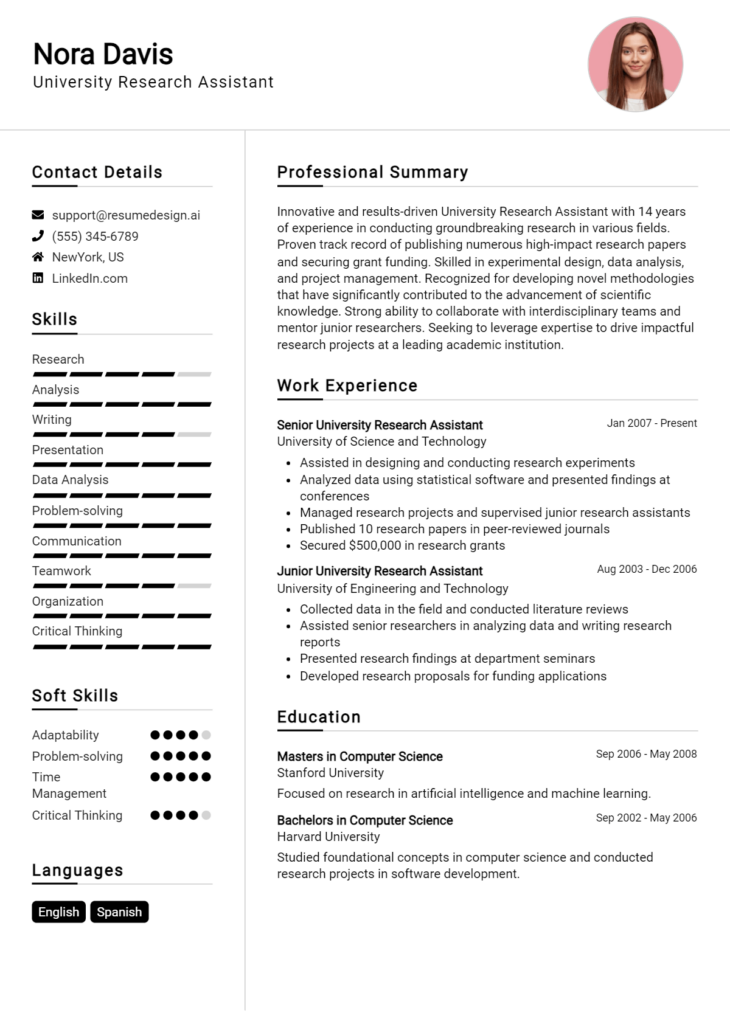University Lecturer Core Responsibilities
A University Lecturer plays a crucial role in academia, combining expertise in their subject area with strong communication and interpersonal skills. They bridge various departments by collaborating on interdisciplinary projects, thereby fostering a rich educational environment. Essential skills include technical acumen, operational efficiency, and robust problem-solving abilities, which contribute to the institution's overarching goals. A well-structured resume highlighting these qualifications can effectively demonstrate a candidate's potential to enhance academic excellence and student engagement.
Common Responsibilities Listed on University Lecturer Resume
- Developing and delivering engaging course materials and lectures.
- Conducting research and publishing findings in academic journals.
- Supervising and mentoring undergraduate and graduate students.
- Participating in departmental and university committees.
- Assessing and grading student work and providing constructive feedback.
- Staying updated with advancements in the field and incorporating them into the curriculum.
- Advising students on academic and career pathways.
- Collaborating with colleagues across different disciplines to enhance learning outcomes.
- Organizing workshops, seminars, and conferences.
- Engaging with the community through outreach programs and partnerships.
- Maintaining office hours for student consultation and support.
High-Level Resume Tips for University Lecturer Professionals
A well-crafted resume is a critical tool for University Lecturer professionals seeking to make a lasting impression on potential employers. As the first point of contact in the hiring process, your resume serves not only as a summary of your qualifications but also as a showcase of your skills, achievements, and teaching philosophy. It needs to reflect your unique contributions to academia and demonstrate how you can enhance the educational environment at a prospective institution. This guide will provide practical and actionable resume tips specifically tailored for University Lecturer professionals, helping you to effectively present your candidacy.
Top Resume Tips for University Lecturer Professionals
- Tailor your resume to the specific job description by incorporating keywords and phrases used in the posting.
- Highlight relevant teaching experience, including courses taught, curriculum developed, and any innovative teaching methods employed.
- Quantify your achievements where possible, such as improvements in student performance or successful grant applications.
- Showcase your research contributions, including published papers, conference presentations, and collaborations with other scholars.
- Emphasize your industry-specific skills, such as familiarity with educational technology, curriculum design, and student assessment strategies.
- Include any professional development activities, such as workshops, certifications, or training related to pedagogy and higher education.
- Utilize a clear and organized format, with headings and bullet points that make it easy for hiring committees to scan your resume quickly.
- Incorporate your teaching philosophy and approach to student engagement, demonstrating your commitment to fostering a dynamic learning environment.
- Don’t forget to include relevant service roles within the academic community, such as committee memberships or mentorship programs.
By implementing these resume tips, you can significantly increase your chances of landing a job in the University Lecturer field. A focused and well-structured resume not only highlights your qualifications but also presents you as a strong contender who is ready to contribute positively to the academic community.
Why Resume Headlines & Titles are Important for University Lecturer
In the competitive landscape of academia, a well-crafted resume headline or title serves as a crucial first impression for University Lecturer candidates. This succinct phrase not only grabs the attention of hiring managers but also encapsulates a candidate's essential qualifications and areas of expertise. A strong headline immediately communicates the applicant's value proposition, making it easier for hiring committees to recognize their potential fit for the role. It is vital for this headline to be concise, relevant, and directly aligned with the specific position being applied for, as it sets the tone for the rest of the resume and can significantly influence the initial review process.
Best Practices for Crafting Resume Headlines for University Lecturer
- Keep it concise: Aim for one impactful phrase that captures your main qualifications.
- Be role-specific: Tailor your headline to reflect the specific lecturer position you are applying for.
- Highlight key strengths: Focus on your most notable skills, experiences, or accomplishments relevant to academia.
- Use action-oriented language: Employ dynamic verbs and adjectives to convey enthusiasm and professionalism.
- Avoid jargon: Ensure clarity by using straightforward language that is easily understood by all readers.
- Incorporate keywords: Utilize relevant keywords from the job description to enhance visibility and alignment.
- Showcase your unique selling proposition: Identify what sets you apart from other candidates in your field.
- Keep it professional: Maintain a formal tone suitable for an academic environment.
Example Resume Headlines for University Lecturer
Strong Resume Headlines
Innovative University Lecturer Specializing in Educational Technology and Student Engagement
Experienced Academic Leader with a Proven Record in Curriculum Development and Research Excellence
Dynamic Lecturer in Sociology with Extensive Field Experience and Award-Winning Teaching Methods
Weak Resume Headlines
Lecturer Looking for Opportunities
Experienced Teacher
The strong headlines are effective because they are specific, highlighting unique qualifications and achievements that are relevant to the role of a University Lecturer. They clearly communicate the candidate's strengths and areas of expertise, making a compelling case for their candidacy. In contrast, the weak headlines lack specificity and fail to convey any distinctive qualities, making them forgettable and less likely to engage hiring managers' interest. By avoiding generic phrases, candidates can better position themselves in a competitive job market.
Writing an Exceptional University Lecturer Resume Summary
A resume summary is a crucial component for a University Lecturer seeking employment, as it serves as a snapshot of the candidate's qualifications and professional identity. A well-crafted summary quickly captures the attention of hiring managers by showcasing key skills, relevant experience, and notable accomplishments that align with the job role. It should be concise, impactful, and tailored to the specific position being applied for, allowing candidates to make a strong first impression and stand out in a competitive academic job market.
Best Practices for Writing a University Lecturer Resume Summary
- Quantify achievements by including specific metrics that demonstrate success, such as publication counts or student success rates.
- Focus on relevant skills that are aligned with the job description, showcasing both teaching and research abilities.
- Tailor the summary for each job application, incorporating keywords and phrases from the job description to enhance relevance.
- Highlight unique contributions or experiences that set you apart from other candidates, such as interdisciplinary projects or innovative teaching methods.
- Keep it concise, ideally within 3-5 sentences, to ensure clarity and maintain the reader's interest.
- Use strong action verbs to convey a sense of proactivity and achievement, making your contributions more impactful.
- Include a mix of both teaching and research accomplishments to provide a well-rounded view of your capabilities.
- Proofread for clarity and professionalism, as a polished summary reflects attention to detail and dedication to excellence.
Example University Lecturer Resume Summaries
Strong Resume Summaries
Dynamic university lecturer with over 10 years of experience in higher education, specializing in cognitive psychology. Published 15 peer-reviewed articles and developed innovative curriculum enhancements that improved student engagement scores by 30% over two years.
Results-oriented academic with a proven track record of mentoring undergraduate research projects, leading to a 25% increase in student publications. Expertise in data analysis and statistical software, fostering a hands-on learning environment in courses on quantitative research methods.
Accomplished lecturer with a Ph.D. in Environmental Science, recognized for integrating real-world case studies into coursework, resulting in a 40% improvement in student project outcomes. Committed to fostering inclusivity and diversity in academic settings.
Weak Resume Summaries
Experienced lecturer with a background in various subjects and a passion for teaching. Interested in contributing to the academic community.
University educator with knowledge in different fields. Looking for opportunities to share expertise and help students learn.
The strong resume summaries are considered effective because they provide specific metrics, highlight relevant skills, and demonstrate direct contributions to student success and academic excellence. In contrast, the weak summaries lack detail and quantifiable outcomes, making them too generic and less engaging for hiring managers. They do not effectively showcase the candidate's qualifications or unique strengths, which can result in being overlooked in the competitive academic job market.
Work Experience Section for University Lecturer Resume
The work experience section of a University Lecturer resume is a critical component that highlights the candidate's technical skills, leadership abilities, and contributions to academic and community projects. This section not only demonstrates the candidate's expertise in their subject area but also provides evidence of their capability to manage teams and deliver high-quality educational products. By quantifying achievements and aligning experiences with industry standards, candidates can effectively position themselves as strong contenders for academic roles, showcasing their value to potential employers.
Best Practices for University Lecturer Work Experience
- Highlight relevant teaching and research experiences that showcase your technical expertise.
- Use quantifiable metrics to demonstrate the impact of your work, such as improved student performance or increased research funding.
- Include collaborative projects that illustrate your ability to work effectively with colleagues and students.
- Tailor your experiences to align with the institution's values and mission, emphasizing your fit for the role.
- Incorporate specific examples of curriculum development, course design, or innovative teaching methods.
- Showcase leadership roles you have held, including mentoring students or leading departmental initiatives.
- Keep the descriptions concise but comprehensive, focusing on achievements rather than just responsibilities.
- Utilize action verbs to convey a proactive approach and demonstrate your contributions to the academic community.
Example Work Experiences for University Lecturer
Strong Experiences
- Developed and implemented a new undergraduate curriculum that resulted in a 30% increase in student enrollment within two years.
- Secured $150,000 in research grants, leading a team of five researchers to publish three peer-reviewed articles in top-tier journals.
- Organized and led an interdisciplinary workshop that enhanced collaboration between engineering and humanities departments, resulting in a joint research project.
- Mentored 10 graduate students, guiding them to successful thesis defenses and improving their job placement rates by 40%.
Weak Experiences
- Taught various classes with no specific achievements mentioned.
- Participated in departmental meetings and discussions.
- Conducted research without detailing the outcomes or contributions.
- Helped students with their projects but did not specify the impact or results.
The strong experiences listed above demonstrate clear, quantifiable outcomes and leadership in both teaching and research, making them impactful and relevant to potential employers. In contrast, the weak experiences lack specificity and measurable results, which diminishes their effectiveness in showcasing the candidate's qualifications and potential contributions to the academic community.
Education and Certifications Section for University Lecturer Resume
The education and certifications section of a University Lecturer's resume is critical for showcasing the candidate's academic background, industry-relevant certifications, and commitment to continuous learning. This section not only highlights the degrees obtained but also underscores specialized training and certifications that enhance the candidate's expertise in their field. By providing relevant coursework, certifications, and any professional development efforts, candidates can significantly improve their credibility and demonstrate their alignment with the requirements of the job role, making a compelling case for their suitability as a lecturer.
Best Practices for University Lecturer Education and Certifications
- Include degrees relevant to the subject area you wish to teach.
- Highlight advanced degrees (e.g., Master's, Ph.D.) to establish expertise.
- List industry-recognized certifications that are pertinent to your teaching discipline.
- Provide details on relevant coursework that enhances your qualifications.
- Include continuous education efforts, such as workshops or seminars.
- Use clear formatting to make the section easy to read and navigate.
- Prioritize recent and relevant qualifications to demonstrate up-to-date knowledge.
- Consider including honors or awards received during your educational journey.
Example Education and Certifications for University Lecturer
Strong Examples
- Ph.D. in Educational Psychology, University of XYZ, 2020
- M.A. in Curriculum Development, University of ABC, 2015
- Certified Online Instructor (COI), Online Learning Consortium, 2021
- Graduate Coursework in Advanced Teaching Methods, University of XYZ, 2018
Weak Examples
- Bachelor's Degree in Business Administration, University of DEF, 2000 (not relevant for teaching in Education)
- Certificate in Basic Computer Skills, Community College, 2010 (too general and outdated)
- High School Diploma, School Name, 1998 (not sufficient for University Lecturer role)
- Online Course in Social Media Marketing, 2012 (not aligned with academic teaching focus)
The strong examples provided demonstrate relevant and advanced qualifications that directly align with the role of a University Lecturer, showcasing both depth of knowledge and specialization. In contrast, the weak examples reflect outdated or irrelevant qualifications that do not support the candidate's fit for a teaching position, emphasizing the importance of maintaining a focused and pertinent education and certification section on a resume.
Top Skills & Keywords for University Lecturer Resume
As a University Lecturer, possessing the right skills is essential for delivering high-quality education and fostering a positive learning environment. A well-crafted resume that highlights both hard and soft skills can set candidates apart in a competitive job market. These skills not only reflect a candidate's qualifications but also indicate their ability to engage with students, contribute to academic research, and collaborate with colleagues. Emphasizing relevant skills in your resume can enhance your credibility and demonstrate your preparedness for the demanding role of a university educator. For further insights on how to effectively showcase your skills and work experience, consider the following lists.
Top Hard & Soft Skills for University Lecturer
Soft Skills
- Communication Skills
- Adaptability
- Emotional Intelligence
- Team Collaboration
- Conflict Resolution
- Time Management
- Mentorship Ability
- Creativity in Teaching
- Problem-Solving Skills
- Cultural Competence
- Leadership Qualities
- Patience
- Critical Thinking
- Active Listening
- Motivational Skills
Hard Skills
- Subject Matter Expertise
- Curriculum Development
- Research Methodologies
- Online Teaching Platforms
- Data Analysis
- Assessment and Evaluation Techniques
- Grant Writing
- Academic Publishing
- Statistical Software Proficiency
- Instructional Design
- Presentation Skills
- Public Speaking
- Educational Technology
- Classroom Management
- Networking and Collaboration with Academic Institutions
- Knowledge of Accreditation Standards
- Foreign Language Proficiency
- Use of Learning Management Systems (LMS)
Stand Out with a Winning University Lecturer Cover Letter
Dear [Hiring Committee/Specific Person’s Name],
I am writing to express my enthusiasm for the University Lecturer position at [University Name] as advertised on [where you found the job listing]. With a Ph.D. in [Your Field] from [Your University] and over [number] years of teaching experience at [Previous Institution or Institutions], I am excited about the opportunity to contribute to your esteemed program. My commitment to fostering an engaging learning environment, coupled with my research expertise, aligns well with your department's goals and values.
Throughout my academic career, I have taught a diverse range of courses, including [list relevant courses], and have consistently received positive feedback from students for my interactive teaching methods and dedication to their success. I believe in integrating real-world applications into my curriculum, which encourages students to think critically and engage deeply with the material. Additionally, my involvement in curriculum development and mentoring programs has equipped me with the skills necessary to support students in their academic and professional pursuits.
My research, which focuses on [briefly describe your research area], has been published in several reputable journals and has garnered attention at national conferences. I am passionate about sharing this knowledge with students and inspiring them to pursue their own research interests. I am also eager to collaborate with colleagues on interdisciplinary projects that can enhance our department's offerings and promote a culture of innovation and inquiry among students.
I am excited about the possibility of joining [University Name] and contributing to its vibrant academic community. Thank you for considering my application. I look forward to the opportunity to discuss my candidacy further and explore how I can support the mission of your university.
Sincerely,
[Your Name]
[Your Contact Information]
Common Mistakes to Avoid in a University Lecturer Resume
When crafting a resume for a University Lecturer position, it’s essential to present your qualifications and experience effectively. However, many candidates make common mistakes that can detract from their appeal. Avoiding these pitfalls can enhance your chances of standing out in a competitive academic job market. Here are some of the most frequent errors to watch for:
Neglecting to Tailor the Resume: Submitting a generic resume without tailoring it to the specific institution or department can signal a lack of genuine interest in the position.
Overloading with Jargon: While academic language is important, excessive jargon can make your resume difficult to read. Strive for clarity and conciseness.
Ignoring Teaching Philosophy: Failing to include a brief statement of your teaching philosophy can leave out a crucial aspect of your candidacy, as universities often look for alignment with their educational values.
Omitting Relevant Publications: Not listing relevant publications or research can be a missed opportunity to showcase your expertise and contributions to your field.
Using an Unprofessional Format: A cluttered or overly creative format can distract from your qualifications. Stick to a clean, professional layout that emphasizes readability.
Listing Responsibilities Instead of Achievements: Focusing solely on job responsibilities rather than highlighting specific achievements can underplay your impact and effectiveness as an educator.
Forgetting to Include Professional Development: Not mentioning any professional development activities, such as workshops or conferences, can suggest a lack of engagement with ongoing learning in your field.
Neglecting to Proofread: Spelling or grammatical mistakes can undermine your professionalism and attention to detail. Always proofread your resume or have someone else review it before submission.
Conclusion
As a University Lecturer, your role is multifaceted, encompassing teaching, research, and service to the academic community. Throughout this article, we've discussed the essential skills required for success in this position, including effective communication, subject matter expertise, and the ability to engage and inspire students. We also highlighted the importance of staying updated with educational trends and methodologies, as well as the necessity of publishing research and contributing to your field.
To further enhance your career prospects, it's crucial to have a standout resume that effectively showcases your qualifications and experience. We encourage you to take a moment to review and refine your University Lecturer Resume.
Utilize resources available at your fingertips, such as resume templates, which can provide a polished and professional layout. For a more personalized approach, consider using a resume builder that allows you to customize your resume according to your unique experiences and strengths. Additionally, reviewing resume examples can offer inspiration and guidance on how to present your accomplishments effectively.
Don't forget the importance of a compelling introduction; check out cover letter templates that can help you craft a narrative that complements your resume and highlights your passion for teaching and research.
Take action today to ensure your application materials reflect your dedication and expertise as a University Lecturer. Your career advancement starts with a standout resume!

